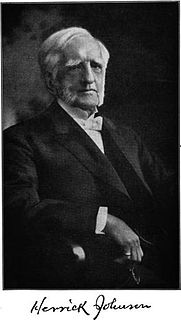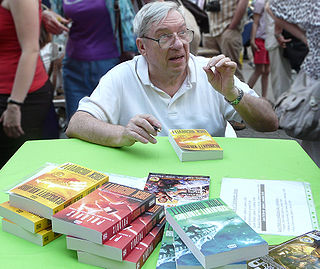A Quote by Christian Nestell Bovee
The legitimate aim of criticism is to direct attention to the excellent. The bad will dig its own grave, and the imperfect may safely be left to that final neglect from which no amount of present undeserved popularity can rescue it.
Related Quotes
Though Israel may often be deserving of criticism, what is missing is the comparable criticism of equal or greater violations by other countries and other groups. This constant, often legitimate criticism of Israel for every one of its deviations, when coupled with the absence of legitimate criticism of others, creates the impression currently prevalent on university campuses and in the press that Israel is among the worst human rights violators in the world....it is not true, but if it is repeated often enough, it takes on a reality of its own.
there are no knights on white horses, no magical grandmothers in the sky watching, waiting to rescue us. Teachers may come our way, but they will not rescue. They will teach. People who care will come, but they will not rescue. They will care. Help will come, but help is not rescuing. We are our own rescuers. Our relationships will improve dramatically when we stop rescuing others and stop expecting them to rescue us.
In education, it is said that the state must impose schooling on all children, else the parents and communities will neglect it. Only the state can make sure that no child is left behind. The only question is the means: will we use the union and bureaucracies favored by the left, or the market incentives and vouchers favored by the right. I don't want to get into a debate about which means is better, but only to draw attention to the reality that these are both forms of planning that compromise the freedom of families to manage their own affairs.
Look, therefore, which way we will, whether at the direct Scriptural statements of death as the penalty of sin, or at the agony of the cross as a means of rescue, or at the joy of the angels of God over a rescue; we see from either that it must be a work of infinite and eternal consequence--the work of redemption.
Such is the moral construction of the world that no national crime passes unpunished in the long run... Were present oppressors to reflect on the same truth, they would spare to their own countries the penalties on their present wrongs which will be inflicted on them in future times. The seeds of hatred and revenge which they sow with a large hand will not fail to produce their fruits in time. Like their brother robbers on the highway, they suppose the escape of the moment a final escape and deem infamy and future risk countervailed by present gain.
Whatever we may say against collections, which present authors in a disjointed form, they nevertheless bring about many excellent results. We are not always so composed, so full of wisdom, that we are able to take in at once the whole scope of a work according to its merits. Do we not mark in a book passages which seem to have a direct reference to ourselves? Young people especially, who have failed in acquiring a complete cultivation of mind, are roused in a praiseworthy way by brilliant passages.
Of course, this has its good side as well as its bad one. As we become permanent drunkards by so may separate drinks, so we become saints in the moral, and authorities and experts in the practical and scientific spheres, by so many separate acts and hours of work. Let no youth have any anxiety about the upshot of his education, whatever the line of it may be. If he keep faithfully busy each hour of the working day, he may safely leave the final result to itself.
Unexplained pain may sometimes direct our attention to something unacknowledged, something we are afraid to know or feel. Then it holds us to our integrity, claiming the attention we withhold. The thing which calls our attention may be a repressed experience or some unexpressed and important part of who we are. Whatever we have denied may stop us and dam the creative flow of our lives. Avoiding pain, we may linger in the vicinity of our wounds, sometime for many years, gathering the courage to experience them.
Every man, however hopeless his pretensions may appear, has some project by which he hopes to rise to reputation; some art by which he imagines that the attention of the world will be attracted; some quality, good or bad, which discriminates him from the common herd of mortals, and by which others may be persuaded to love, or compelled to fear him.

































